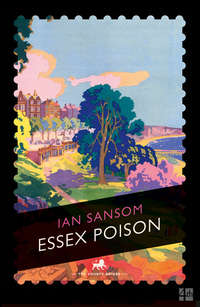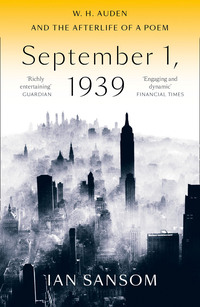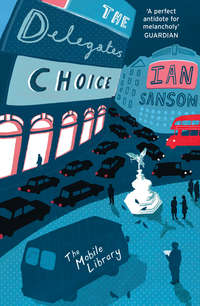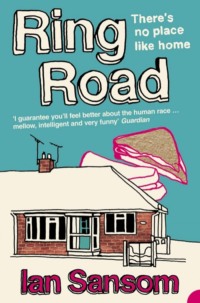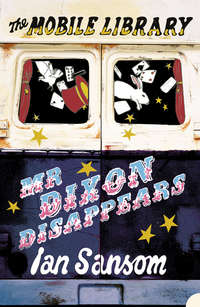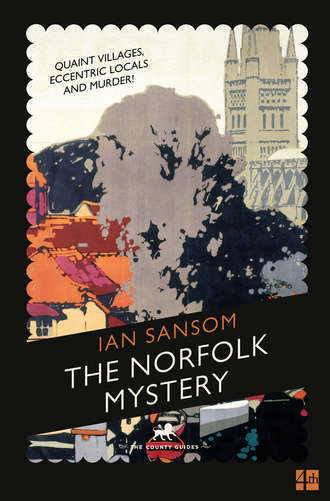
Полная версия
The Norfolk Mystery
I had heard of his books: everyone had heard of his books, just as everyone has heard of Oxo cubes, or Bird’s Custard Powder. I had certainly seen his books for sale at railway stations, and at W.H. Smith’s. I can even vividly recall a bookcase on the top landing of my parents’ home – beneath the sloping roof and the stained-glass window – containing a set of Morley’s leather-bound Children’s Cyclopaedia, which I may perhaps, as a young child, have thumbed through. But they left no lasting impression. Swanton Morley was not an author who produced what I, as a young child, would have regarded as ‘literature’ – he was no Edgar Rice Burroughs, no Jack London, no Guy Boothby or Talbot Baines Reed, no Conan Doyle – and by the time I had reached my adolescence I had already begun to fancy myself a highbrow, and so Morley’s sticky-sweet concoctions of facts and tales of moral uplift would have been terribly infra dig. Finally, Dr Leavis at Cambridge had effectively purged any lingering taste I may have had for the middle- and the lowbrow. Morley and I, one might say, were characters out of sympathy, of different kinds, and destined never to meet.
But I was also, at that moment in time, out of work, out of luck and out of options.
On leaving the Reform Club after my interview, I therefore found myself walking up Haymarket, and then along Shaftesbury Avenue and onto the Charing Cross Road. I thought I might visit Foyle’s Bookshop, in order to catch up with a lifetime’s reading on Mr Swanton Morley.
Crowds thronged outside Foyle’s, the usual overcoated men rifling through the sale books, the publishers’ announcements filling the vast windows, one of which was given over to the current ‘Book of the Week’, a volume optimistically titled Future Possibilities. Two dismal young boys in blue berets prodded a shuffling monkey in a red cap to keep moving in circles on the pavement to the sick-making tune of their hurdy-gurdies. The customary beggar stood outside the main door, scraping on a violin, a piece of card hung around his neck. ‘Four Years’ Active Service, No Pension, Unable to Work’. Pity and loathing made me give him a penny.
To enter into a bookseller’s is of course to feel an instant elevation in one’s mental station – or it should be. My father had once held an account with Ellis of 29 Bond Street, a bookseller that raised the tone not merely of those entering the shop, but even of those merely passing it by, and I had visited small bookshops in Barcelona, and others in the Palais Royale in Paris, whose elegance seemed to rub off on the browser, like fine print from the daily papers. But Foyle’s is not, and never has been, a place of elegance and enlightenment: it is a shop, merely, a very large shop, but most definitely a shop, a place of sales, a department store for books, with its vast stock and signs jumbled everywhere, shelf rising inexplicably above shelf, book upon book, complex corridor upon complex corridor. I squeezed into the main lobby past a young lady in an apron dusting the top row of a long shelf displaying Sir Isaac Pitman’s apparently endless Industrial Administration Series, and asked the first shopwalker I could find, a young man, where I might discover the works of Swanton Morley. He turned from casually rearranging an inevitable shelf of those dreadful, faddish books – including How Not to be Fat, Why Not Grow Young? and Eating Without Fear – and escorted me daintily to a long wooden counter, bearing vivid colour posters advertising a new edition of Kettner’s Book of the Table, where a young lady – who might easily have been a barmaid were it not for the fact of her wearing spectacles – seemed more than prepared to assist.
‘Swanton Morley? One moment, please,’ she said efficiently, turning to reach behind her for a large red volume whose embossed spine announced it as The Reference Catalogue for Current Literature 1936. ‘I’ll just check in Whitaker’s.’ She opened up the book, began rifling through the pages. ‘Would you like me to note down the titles for you, sir?’
‘No thank you.’ I thought I should be able to remember a few titles.
‘Very well,’ she said, her finger sliding slowly down the page and finally coming to rest. ‘Here we are now. Morley’s Animal Husbandry. That would be in Animal Lore, sir, second floor.’
‘Good.’ I made a mental note of Animal Lore, second floor.
‘Morley’s Art for All. Aesthetics, sir, second floor.’
I nodded. She continued.
‘Morley’s Astronomy for Amateurs. Astronomy, third floor … Morley’s Carpentering. Carpentering, second floor. Morley’s Children’s Songs and Games, ground floor … Cookery, first floor … Education, fourth floor …’
‘Wait, wait, wait,’ I said. ‘Third floor, second floor, first floor, ground floor.’
‘Fourth floor,’ she added.
‘And how many floors have you?’
‘Four. Unless you have a specific book in mind, sir, you might be better simply browsing among our stock. Mr Morley seems to have published many …’ She slid the big red book around so I could see the entries. ‘Gosh. Possibly hundreds of books, sir.’
‘I see.’ The list of Morley’s books ran to two pages of two-columned tiny type: my eyes glazed over at the mere thought of them.
Nonetheless, I wandered contentedly alone for the rest of the afternoon through Foyle’s great avenues of books. As readers will doubtless be aware, books in Foyle’s are not much arranged; within their categories books seem to be classified variously, and possibly randomly, by name, or by title, or by publisher. Some books seemed to have been undisturbed for many years, and many of the rooms were entirely deserted. But Swanton Morley was everywhere: he seemed successfully to have colonised the entire shop. During the course of a long afternoon I discovered not only books about poetry, and philosophy, and economics, which I had expected, but also campaigning works – The Cigarette Peril, Testaments Against the Bottle, War: The Living Reality – and volumes on gardening, marriage, medicine and mineralogy. In Religion I found Morley’s Children’s Bible. In Music, Learn to Listen with Morley. Elsewhere, in and out of their appropriate places I came across Morley’s Happy Traveller, Morley’s Nature Story Book, Morley’s Animal Adventures, Morley’s Adventure Story Book, Morley’s Book for Girls, Morley’s Book for Boys, Morley’s Everyday Science, Morley’s Book of the Sea, Morley’s Tales of the Travellers, Morley’s Lives of the Famous, Morley’s British Mammals, Morley’s Old Wild West … The sheer plenitude was astonishing, dumbing. It was as if the man were writing in constant fear of running out of ink. Morley’s Want to Know About …? series were everywhere. Want to Know About Iceland? Want to Know About Shakespeare? Want to Know About Trees? Just the thought of them made me want to give up knowing about anything. Morley’s Book of the World, a four-volume set I came across misplaced among books on Veterinary Science, made the boast on its dust jacket that a book by Swanton Morley could be found in every household in Britain. They were certainly to be found on almost every shelf in Foyle’s.
The books, qua books, varied in their quality from edition to edition: some were lavishly illustrated with pictures, plain and coloured, and mezzotint portraits; others were dense with type; some with fine bindings; others in cheap, flexible cardboard covers. And yet for all their apparent variety, the books were all written in the same tone – a kind of joyous, enthusiastic, maddening tone. The pose was of the jaunty professor – or, dare one say, the eccentric sixth-form master – and yet I thought, leafing through various volumes, that I occasionally caught sight of a desperate man fleeing from the abyss. This, for example, from Morley’s History of Civilisation: ‘Some may say that man is but a speck of mud suspended in space. I say to them, some mud, that can know what suffering is, that can love and weep, and know longing!’ Or this, from Morley’s English Usage: ‘The world may be troubled and difficult: our words need not be so.’
But perhaps I was reading my own experiences into the work.
I returned to my room in the early evening, depressed, dizzied and depleted.
As I made my way wearily down the stone steps towards my dank basement, a Chinaman hurried out of the laundry at street level above. He wore his little black skull cap and his long thin black coat turned green with age. We had occasionally exchanged greetings, though he could speak no English and I no Chinese – I was anyway far beyond the desire to be neighbourly. He smiled at me toothlessly, thrust a telegram into my hand, and hurried back to his work.
I tore open the telegram, which read simply:
‘CONGRATULATIONS. STOP. HOLT. STOP.
5.30 TOMORROW.’

CHAPTER FOUR
AS IT HAPPENED, I had no other pressing engagements.
And so, the next day, I packed my few belongings – a spare suit, some thin volumes of poetry, my old Aquascutum raincoat, my supply of Seconal and aspirin – into a cardboard suitcase which I had managed to salvage from the wrack and wreckage of my life, and left my lodgings for Liverpool Street Station. There I found the connections for Holt, spent all my remaining money on the ticket and a supply of tobacco, and set off to meet my new employer, Mr Swanton Morley. The People’s Professor.
As the train pulled away I felt a great relief, a burden lifting from my shoulders, and I found myself grinning at myself in the window of the carriage. Little more than eighteen months previously I had left London – Victoria Station, the boat train for France, then Paris – for Spain, a young man full of dreams, about to embark on my great moral crusade, with justice on my side and my fellow man alongside me. Now, gaunt, limping, and my hair streaked with white, I saw myself for what I was: a man entirely alone, scared even of the roar of the steam train and motor traffic, impoverished and rootless. I had of course no idea at that moment, but in giving up on my absurd fantasies of performing on the stage of world history I had in fact unwittingly become a small and insignificant part of the terrible drama of our time. I had imagined that I was to determine the course of history, but history had taken possession of me. And if, as they say, nature is a rough school of men and women, then history is rougher … But already I am beginning to sound like Morley.
I should continue with the tale.
It had always been my ambition to travel. My father’s job as a royal messenger had meant that he had been all over Europe and further afield, scurrying from Balmoral to Windsor and to Whitehall, carrying with him letters of royalty and of state, emblazoned with the proud stamp OHMS. When I was a boy he would recount to me his stirring adventures among the Czechs, and the Serbians, and the Slovaks and Slovenes, dodging spies and brigands who tried to steal his dispatch case – tales in which he would triumph by courteous manners – and although we lived in relatively modest circumstances in a small house in Kensington, I had been introduced at an early age to ambassadors and diplomats from France, and China and Japan, and had imagined for myself a future abroad in khaki, and in starched collars, striped trousers and sun-helmet, upholding the Empire by good manners and breeding alone. In my own country I took little interest: I cared nothing for the Boat Race, or Epsom, or cricket at Lord’s. My dreams were of Balkan beauties, of Paris, Hungary and Berlin, of steamers on the Black Sea, and of adventures in Asia Minor. I imagined camels, and consuls and tussles with petty local officials. I harboured absolutely no desires to travel up and down on the branch lines of England.
Nonetheless, as we passed the houses and churches and slums of east London I felt the familiar ecstasy of departure. I took two Seconal, a handful of aspirin, and felt myself released again from the vast jaws of my ambitions, and fell into a troubled sleep – dreams of Spain confused with visions of a ruined London, flying demons dropping explosives overhead, fires raging in the streets, men slithering like beasts, every town and every city throbbing with fear and violence.
I woke thick-headed some time before we arrived in Melton Constable, where I changed quickly onto the branch railway, a little three-carriage local train done out proudly in its golden ochre livery, and which heaved its way slowly through the meadows of East Anglia. I took a window seat in the second-class non-smoker, the only seat remaining, and, gasping for air and desperate to smoke, ignoring the protests of my fellow passengers, pulled down a leather strap on the window – and was immediately assaulted by a dusky country smell of muck and manure. I quickly abandoned all thoughts of a cigarette. I hadn’t eaten all day, and the country smells, and the pathetic chugging of the train resulted in my feeling distinctly hag-ridden by the time we made Holt Station at precisely five thirty. I was the only passenger to disembark at Holt – porters hauled a couple of milk crates and packages out of the luggage van, a guard walked down the platform, closing each door, and then the bold little vermilion engine went on its way – and it was too late when I realised that I had left my cardboard suitcase on the train, with my spare suit, my poetry, my tobacco and my pills.
I looked around for any signs of help, welcome or assistance.
There was none. The porters had vanished. The guard gone.
And there was absolutely no sign of Morley.
Nor was there anyone in the station office – though a set of dominoes set out upon a table suggested recent occupation and activity. Outside, in the gravelled forecourt, was a car with a woman leaning up against it, languidly smoking, chatting to the young man who, I assumed from his uniform, should have been manning the station. I could see that the young lady might prove more of a distraction than a solitary game of dominoes. She wore her dark hair in a sharp, asymmetric bob – which gave her what one might call an early Picasso kind of a profile – and she was wearing clothes that might have been more appropriate for a cocktail party down in London rather than out here in the wilds of Norfolk: a pale blue-grey close-fitting dress, which she wore with striking red high-heeled shoes, and buttoned red leather gloves. It was a daring ensemble, deliberately hinting, I thought, at desires barely restrained; and her crocodile handbag, the size of a small portmanteau, suggested some imminent, illicit assignation. She struck one immediately as the kind of woman who attended fork luncheons and fancy dress parties with the Guinnesses, and who had ‘ideas’ about Art and who was passionate in various causes; the sort of woman who cultivated an air of mystery and romance. I had encountered her type on my return from Spain at fashionable gatherings in the homes of wealthy fellow travellers. Such women wearied me.
‘Well!’ she said, turning first towards and then quickly away from me, narrowing her eyes in a glimmering fashion. ‘You’ll do.’ There was a tone of studied boredom in her words that attempted to belie her more than apparent perk.
‘I’m sorry, miss, I do beg your pardon.’
She threw away her cigarette, ground it out theatrically under her foot, and climbed into the car. ‘Bye, Tommy!’ she called to the station guard, who began sauntering back to his office.
‘Goodbye, miss,’ he called, waving, red-faced, placing his cap back upon his head.
‘Excuse me,’ I said, addressing him. ‘I need to ask about my luggage. It’s gone missing. I wonder if—’
‘Well, come on, then, if you’re coming,’ the young woman interrupted, impatiently, patting the smooth white leather seat beside her in the car.
‘I’m awfully sorry, miss,’ I said, ‘I’m waiting for someone and—’
‘Yes! Me, silly!’ she said. ‘Come on.’
‘I’m afraid you’re mistaken, miss. I’m waiting for a Mr Swanton Morley.’
She cocked her head slightly as she looked at me, in a way that was familiar. ‘Sefton, isn’t it?’ she said.
‘Yes.’
‘Well, I’m here to collect you, you silly prawn, come on.’
‘Ah!’ I said. ‘I do apologise. It’s just, I was expecting … Mr Morley himself.’
‘I’m Miriam,’ she said. ‘Miriam Morley. And wouldn’t you rather I was collecting you than Father?’
It was an impossible question to answer.
‘Well,’ I said, extending my hand. ‘Pleased to meet you, Miss Morley.’
She raised her fingers lightly to my own.
‘Charmed, I’m sure.’
‘If you wouldn’t mind waiting a moment I need to see if I can arrange for my luggage, which I’m afraid I’ve left on the—’
‘Tommy’ll sort all that out, won’t you, Tommy?’ she said.
‘Certainly, ma’am,’ said Tommy obediently.
‘There,’ she said, her eyes flashing at me. ‘Now that’s sorted, hop in and hold on to your hat!’ she cried. I did as instructed, having no alternative, and as soon as I’d shut the door she jerked off the brake, thrust the gearstick forward, and we went sailing at high speed through the deserted streets of Holt.
‘Lovely little town,’ I said politely, above the roaring noise of the engine.
‘Dull!’ she cried back. ‘Dull as ditchwater!’
We soon came to a junction, at which we barely paused, swung to the right, and headed down through woods, signs pointing to Letheringsett, the Norfolk sky broad above us.
I felt a knotted yearning in my stomach – a yearning for cigarettes and pills.
‘Since we’re to be travelling together, miss, I wonder if you might be able to spare me a cigarette?’
‘In the glove compartment,’ she said. ‘Go ahead. Take the packet.’
I took a cigarette, lit it, and inhaled hungrily.
‘Manners?’ said my companion.
‘Sorry, miss? You’d rather I didn’t smoke?’
‘Don’t be ridiculous! Do I look like a maiden aunt?’ She did not. ‘But I would expect a gentleman to offer me one of my own cigarettes. Unless of course you are not a gentleman …?’
I lit another cigarette from my own, and passed it across.
‘So,’ she yelled at me, as we screeched around a sharp corner at the bottom of the hill, barely controlling the animal-like ferocity of the car. ‘You’re not one of Father’s dreadful acolytes?’
‘No. I don’t think so,’ I said. ‘I—’
‘Good. He usually attracts terrible types. Teetotallers. Non-smokers. Buddhists, even! Have you ever met a Buddhist, Sefton?’
‘No, miss, I don’t think—’
‘Dreadful people. Breathe through their noses. Disgusting. Being in the public eye, as we are, one does attract the most peculiar people. Hundreds of letters every week – some of them from actual lunatics in actual lunatic asylums! Can you imagine! Even the so-called normal ones are rather creepy. And we have people turning up at the house sometimes with cameras, wishing to take his photograph. Quite ridiculous! Isn’t it, Sefton?’ She looked across at me, searching my face for agreement.
‘Yes,’ I said, wishing that she’d pay more attention to the road. We passed, in quick succession: a large water mill to the left, offering for sale its own flour and oats; signs for a place called, improbably, Glandford, to the right; a large, rambling coaching inn, charabancs parked outside; a brand-new manor house sporting out-of-proportion Greek columns; and then a gypsy caravan by the side of the road, filthy gypsy children riding an Irish wolfhound before it, a pipe-smoking woman tending a fire alongside it, stirringa black pot of what may well have been goulash, but which was probably rabbit stew and, propped up against a nearby tree, a hand-painted sign advertising ‘Gypsy Pegs, Knife-Sharpening, Card Readings, Puppies’. I was suddenly struck by the rich and exotic beauty of the English countryside, as strange in its way as, say, India, or Port Said. Norfolk: North Africa. ‘It really is rather splendid here, miss, isn’t it?’
‘Oh come on, Sefton! It’s dull! Dull! Dull! Dull! I can’t stand being stuck up here with Father. But then where’s one supposed to go these days? Even London’s getting to be so boring. It’s becoming like a suburb of New York, don’t you think?’ She spoke as if having rehearsed her lines.
‘I’m afraid I’ve not had the pleasure of visiting New York, Miss Morley.’
‘Well, why don’t you take me one day, Sefton, and I’ll show you round.’
‘Well. I’ll certainly … think about that, Miss Morley.’
‘Call me Miriam.’
‘I’ll stick with Miss Morley, thank you.’
‘Oh, don’t be such a stick-in-the-mud, Sefton. What’s the point of such formalities? I believe in being brutally frank.’
‘Very good, miss,’ I said.
‘Really. Brutally, Sefton. I’ll be brutally open and frank with you, and you can be brutally open and frank with me. How does that sound? The best way between grown men and women, isn’t it?’
‘I’m not sure, miss,’ I said.
‘Oh, don’t be so solemn! It’s terribly boring. I’d hoped you might be more fun.’
‘I do my best, miss.’
‘To be fun?’ she said, taking both hands from the wheel and tossing away her half-smoked cigarette. ‘Do you now? I’ll be the judge of that, shall I? Anyway, I should warn you, seeing as you’re going to be staying with us, that despite what everyone thinks, Father is an absolute tyrant, and a complete dinosaur.’
‘I think, miss, it might be more appropriate if—’
‘Appropriate! Are you always so proper and correct, Sefton?’
‘Not always, miss. No.’
‘Good. I’m only telling you the truth. I’m having terrible trouble persuading him to introduce American plumbing at the moment. He believes in early morning starts and cold baths. He’s up studying at five, for goodness sake. I mean, reading before breakfast! Ugh! Rather grisly, don’t you think? Imagine what it must do to the digestion.’
‘Your father, I believe, is a very … diligent and profound student of—’
‘Oh, do give over, Sefton! He’s a madman. Forever writing. Forever reading. Continually being overcome with wonder at the world. It all makes for terribly boring company. Do you believe in early morning starts?’
‘It rather depends what one has been engaged in the night before,’ I said.
‘Quite so, Sefton! Quite so! You know, you might prove to be an ally about the place after all. What about hot baths?’
‘I have no strong opinion about hot baths,’ I said.
We had long passed Letheringsett, and were heading for Saxlingham.
‘“Hot baths are the root of our present languor,”’ she said, in a more than passable imitation of her father. ‘“The hot bath is a medical emergency rather than a diurnal tonic. It destroys the oil of the skin.” Ridiculous! Anyway, Sefton, you’re prepared?’
‘For what?’ I said.
‘What do you imagine I’d be asking you to be prepared for, Sefton?’ She raised a bold eyebrow beneath her bold asymmetric bob. ‘For this ludicrous new enterprise of his, silly.’
‘The County Guides?’
‘Yes. Absurd, isn’t it? As if anyone’s interested in history these days. Ye Olde Merrie Englande? Ye Cheshire Cheese? Ye Local Customs?’
‘I’m not sure that’s what he has in mind. I think it’s more a geographical—’
‘What? Plunges into Unknown Herts? Surrey: off the Beaten? Behold, Ye Ancient Monuments? For pity’s sake, Sefton. Who cares? All those dreadful places. Wessex and Devon! Never mind the north! Hardly bears thinking about. I’m afraid I just couldn’t be bothered.’


